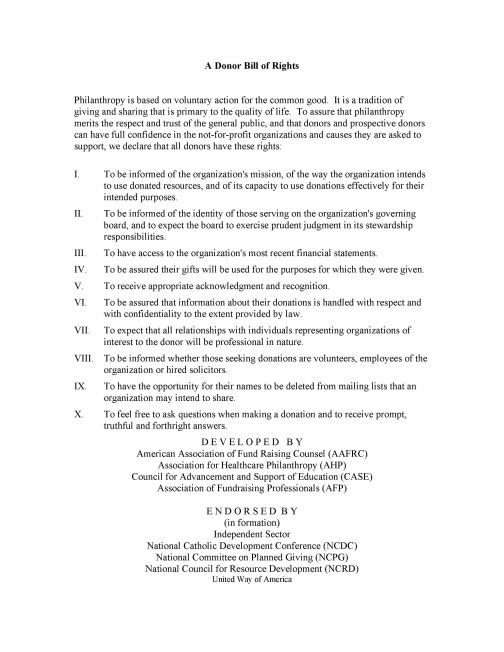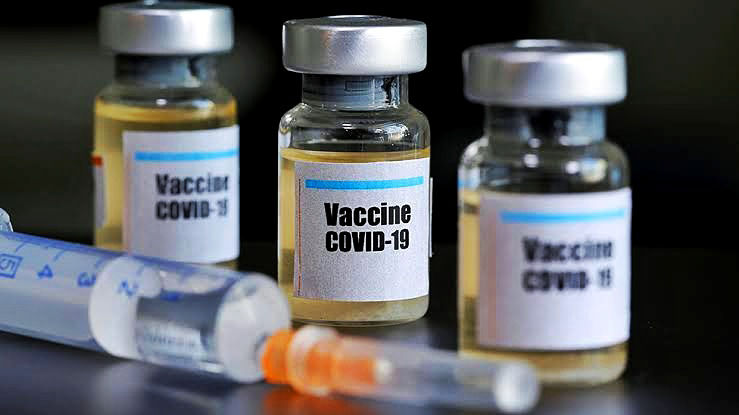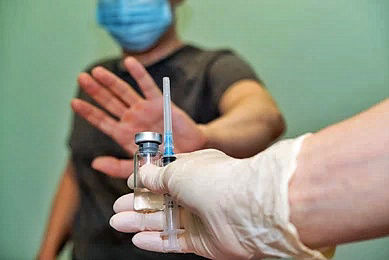A Donor Bill of Rights


Source: BBC News. https://bbc.in/3s2Eo84.
What are Vaccines?
Vaccines are substances containing the weakened version of an infectious pathogen, usually given to healthy individuals to elicit a protective immune response. Simply put, vaccines can be likened to a false alarm that alerts one’s immune system about a particular microbe, and upon subsequent infection by that microbe, the immune system, which is already alert, will attack and destroy it right away. There are different types of vaccines, such as live attenuated vaccines, inactivated vaccines, subunit vaccines, recombinant vaccines, toxoid vaccines and a number of others, which basically make use of weakened or killed forms of the microbe, and in some cases, only consist of certain components of the microbe that can evoke an immune response. The most common routes of administering vaccines are through the mouth (orally) or nose (intranasally), and by injection into the muscles (intramuscularly) and skin (intradermally or subcutaneously).
Why are Vaccines Important?
Vaccines are a great way to stay protected from getting infected by a particular disease-causing microbe. When one gets vaccinated against a disease like COVID-19 for example, the immune system produces substances called ‘antibodies’ that stay in the bloodstream for long, and also produces a particular subset of immune cells called ‘memory cells’ which help in recognizing the virus upon subsequent exposure. When the individual eventually gets infected by the actual virus, the memory cells will immediately recognize it and alert the immune system to respond, while the antibodies act by binding to the virus and neutralizing it. As a result, the immune response against a disease is usually much stronger in individuals that have received initial vaccination, thus, vaccines offer automatic immune protection against specific diseases, even when the person gets infected by the causative microbe.
Vaccines have helped to greatly reduce the number of cases and mortality rates of many infectious diseases. Certain diseases like Cholera, Smallpox, Polio and Ebola have either been eradicated completely or suppressed to very minimal numbers, thanks to worldwide immunization campaigns against these diseases. The lesser the number of infectious diseases we have to treat, the lesser the strain on global healthcare systems.

Source: Shutterstock. https://shutr.bz/3eZDtl1.
What is Vaccine Hesitancy?
This describes the reluctance or refusal of people to get vaccinated against diseases, despite the availability of vaccination services. At a time when vaccines have become a formidable weapon for combating infectious diseases, it is quite disheartening to encounter the challenge of vaccine hesitancy, which has greatly impeded the level of progress made so far in global immunization efforts. The problem of vaccine hesitancy is a complex one, as there are many reasons why people are skeptical about taking vaccines. Some of these reasons include:
• Misconceptions about vaccines: There are many misconceptions about vaccines among the general public, such as the belief that vaccines may have harmful side effects or the notion prevalent in certain regions of Africa that the administration of vaccines is a ‘hidden strategy’ by Western countries to increase the mortality rate among Africans and impose population control. There are also misconceptions in some places that a single vaccine dose can prevent all types of infectious diseases, thus, when the vaccine ‘fails’ to give such protection, faith is lost in immunization for any and all diseases.
• Misconceptions about COVID-19 specifically: It is an established fact that many people in Africa and some other regions do not believe that COVID-19 is real, while others think that it was artificially created in a lab or its health effects are exaggerated, thus, they do not see the need to get vaccinated against the disease. Other public misconceptions hold the idea that natural and home-made herbal remedies are more effective than vaccines, while some persons believe that Africans are immune to COVID-19 and cannot get infected by the virus because of the hot climate, as most viruses thrive best in cooler conditions.
• Difficulty in access: Vaccination campaigns are more prevalent and record higher success in developed countries and urban areas than in developing or underdeveloped countries and rural areas, thus, individuals living in hard-to-reach communities and resource-poor settings find it difficult getting access to regular immunization services, which contributes to their reluctance or inability to get vaccinated.
• Fear of transmission: Since the advent of the COVID-19 pandemic, social distancing measures have been maximally implemented and the fear of transmission has been really high. Some persons may actually have access to health facilities for vaccination, but due to the fear of contracting COVID-19 from such areas which will most likely get crowded, they prefer to avoid vaccination completely.
Why is Vaccine Hesitancy Dangerous?
When people refuse to get vaccinated, it makes them vulnerable to infectious diseases that could easily have been prevented by vaccination. Aside putting one’s health at risk, it also puts the health of individuals in the community at risk, as the chances of attaining herd immunity are lowered. Herd immunity is a phenomenon that naturally occurs when a large percentage of the people in a community are immunized against a particular disease, as this reduces the likelihood of disease transmission and automatically protects the few individuals that are not immunized. For herd immunity to be attained, about 80% of the community population has to be immunized, which is not possible if a majority of the individuals in the community are reluctant to get vaccinated.
Also, vaccine hesitancy has a history of facilitating the re-emergence of vaccine-preventable diseases (VPDs). In the 1970s and 1980s, an outbreak of pertussis (whooping cough) in the United States and the United Kingdom was caused by hesitation among citizens to get vaccinated against the disease. In Nigeria in 2003 and 2004, there was a five-fold increase in the number of polio cases due to the opposition and rejection of vaccines in Northern Nigeria, which eventually led to a global polio outbreak that quickly spread to 20 other countries across Africa, Southeast Asia and the Middle East, causing about 80% of the world’s poliomyelitis cases during the period of 2003 to 2006. The vaccine boycott caused a great setback in worldwide polio eradication efforts and incurred a huge amount of costs to control the global outbreak. Various other incidences exist that highlight the contribution of vaccine hesitancy to infectious disease outbreaks, and these emphasize the need for individuals in all countries and regions to be receptive to immunization campaigns.
How can Vaccine Hesitancy be Overcome?
As a complex problem, vaccine hesitancy requires multiple approaches for effective resolution. It is important that healthcare professionals realize the vital role they have to play in tackling the menace of vaccine hesitancy, as they are the ones who best understand the magnitude of the problem. Healthcare professionals need to take the lead by initiating community awareness campaigns to educate people on the importance of getting vaccinated against infectious diseases like COVID-19, and a host of other diseases. Vaccination advocates and educators need to be sufficiently equipped with accurate information to answer people’s questions, counter arguments that justify vaccine hesitancy, and clear any misconceptions about vaccination among the general public. Social media platforms, newspapers, and radio and television broadcasts must be harnessed to ensure the dissemination of accurate information concerning immunization activities. Online content such as ‘myth busters’ in the form of infographics, articles and educative videos should also be used to improve the awareness of people about the vital role vaccination plays in preventing disease outbreaks and ensuring public health security.
References
1. Afolabi AA, Ilesanmi OS. Dealing with vaccine hesitancy in Africa: the prospective COVID-19 vaccine context. Pan Afr Med J. 2021;38(3). https://doi.org/10.11604/pamj.2021.38.3.27401.
2. Ogundele OA, Ogundele T, Beloved O. Vaccine hesitancy in Nigeria: Contributing factors – way forward. Niger J Gen Pract. 2020;18(1):1 4. https://doi.org/10.4103/NJGP.NJGP_28_19.
Made with Mobirise - Try here